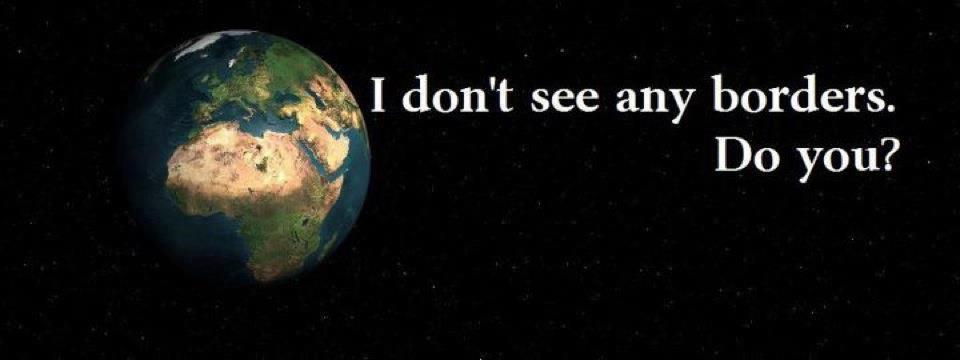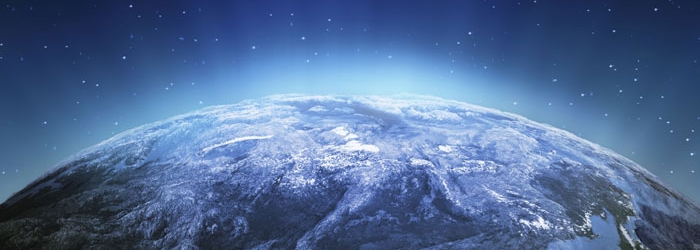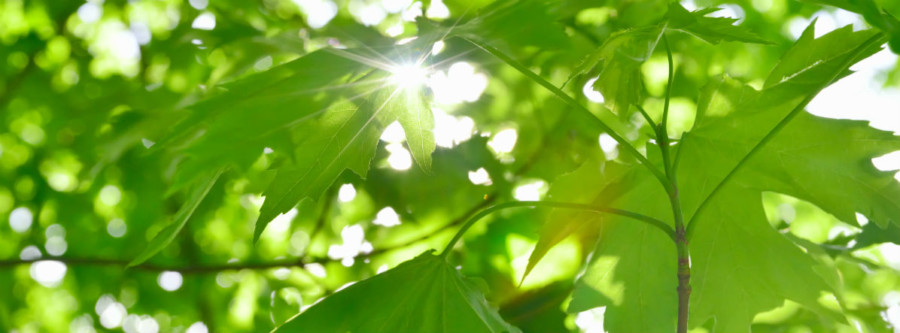The quote above summarizes so clearly the world we are called to see today. I remember once reading that we can live in a house of mirrors where everything we believe is reflected back to us or a house of windows where reality changes moment by moment. To deny climate change is to choose to live in a house of mirrors, but the reality outside the windows is that millions of people are suffering and being displaced because of the disruptive effects of climate change: stronger storms in the form of tornados, hurricanes, and cyclones, tsunamis, forest fires, extreme drought in some areas and flooding in others, melting glaciers and rising sea levels. Climate change knows no borders. It affects all of us, but those living in poverty are disproportionately affected.
Pope Francis reminds us in his encyclical Laudato Si’ that “Climate change is a common good, belonging to all and meant for all.” He continues with a quote from the Bolivian Bishops that “Both everyday experience and scientific research show that the gravest effects of all attacks on the environment are suffered by the poorest.” A call to climate justice is woven throughout the encyclical.
A brief look back at headlines of natural disasters around the world during the past year:
January
- Southern US states braced for floods as Mississippi nears record crest
- Floods hit 16,000 properties in wettest December in a century in the UK
- El Niño rain turns southern California roads to rivers
- Monster snow storm bears down on US east coast threatening chaos
- Deaths in Japan and Taiwan as record cold snap hits east Asia
- Wild weather lashes Australia, bringing damaging winds, flooding rains and hail
February
- Call for urgent inquiry into world heritage forest fires in Tasmania
- Rescuers race to save dozens trapped under rubble of Taiwan earthquake
- UK’s winter floods create 30,000 tonnes of landfill waste
- ‘Severe’ earthquake close to Christchurch (New Zealand) results in injuries and cliff collapse
- Cyclone Winston: tens of thousands homeless in Fiji a week after storm
March
- Tornado touches down in Oklahoma
- Military helicopters join fight against biggest wildfire in Kansas history
- Crane arm bent in half after 105mph Storm Katie winds hit UK
- Storms batter the Southern States while Australia still swelters
April
- Vanuatu hit by 6.9 magnitude earthquake
- Thousands stranded by floods and landslides in north-west Pakistan
- Battered Fiji braces for fresh disaster with arrival of Cyclone Zena
- Japan hit by 7.3-magnitude earthquake
- Ecuador earthquake: death toll triples following 7.8-magnitude quake
- Heavy rains lead to flooding of more than 1,000 Houston homes
- India crippled by extreme weather as 100 million exposed to floods
May
- Huge wildfire blazes across China-Mongolia border
- ‘Absolutely apocalyptic’: Fort McMurray evacuees describe terror of Alberta wildfires
- Dozens buried by landslide in south–east China after heavy rains
- 23 tornadoes rip across Midwest
- Sri Lanka floods displace 350,000 people and leave scores missing
- Powerful earthquake recorded in Australia’s Northern Territory
- ‘There are no words to describe how bad it is’: India endures severe heatwave
- Cyclone Roanu: Bangladesh moves 2 million people from coast
- Deadly volcanic eruption in Indonesia
- Western Australia earthquake has strength of ‘atomic bomb’
- Houses collapse during severe floods in southern Germany
- 20,000 Families Displaced by Floods in Ethiopia
June
- Sinkholes and landslides follow flooding in France and Germany
- Paris floods: ‘There’s something terrifying about it
- Northern Tasmania faces worst flooding in decades as storm heads south
- Floods in southern China, while a powerful tornado hits Montana
- New wildfires erupt in California as heatwave strikes west coast
- Deadly Floods Hit Central Region of Ghana
July
- Typhoon Nida creates chaos across Hong Kong
- Deadly storm hits Macedonia
- Canary Islands fire ravages 7% of La Palma
- Hundreds evacuated from path of wildfire in southern France
- Floods Leave 11 Dead and 1,700 Homes destroyed in Niger
August
- Louisiana flooding: 20,000 people rescued as major disaster declared
- Floods in Louisiana and the Philippines, and a heatwave in South Korea
- Myanmar struck by 6.8-magnitude earthquake
- Deadly earthquake hits central Italy
- Typhoon Lionrock hits Japan
- Dozens Killed in Floods, Over 100,000 Affected in Sudan
- Deadly Floods in Mali and Burkina Faso
September
- East coast of New Zealand struck by earthquake of 7.1 magnitude
- Oklahoma earthquake among strongest in state history
- Wildfires in Spain force residents and holidaymakers to evacuate
- Train derails after landslide as heavy rain causes UK travel chaos
- Thirteen dead and more than 200 injured in 5.7 Tanzania earthquake
- Haze from Indonesian fires may have killed more than 100,000 people
- Samoa hit by hail storm so rare residents thought it was a hoax
October
- ‘It was like a monster’: Hurricane Matthew leaves Haiti in crisis
- Typhoon Chaba sweeps away houses and cars in South Korea
- Italy earthquake: historic structures levelled in biggest quake since 1980
November
- Thousands stranded and towns cut off after New Zealand quakes
- Fukushima residents urged to flee as 7.4 magnitude quake hits Japan
- 7-magnitude quake strikes near El Salvador as hurricane Otto makes landfall
- Torrential rain and floods hit south and eastern parts of Egypt
- Deadly Flash Floods Hit Johannesburg
December
- Thousands in Tennessee hope to return home as rain slows wildfires
This is just a brief snapshot of some of the multiple natural disasters which occurred during the past year. Not all, but many are caused by human activities. Millions of people have been affected; oftentimes those in countries with little infrastructure to cope with the after effects of these disasters.
I had the opportunity to meet the late Wangari Maathai, the Nobel Laureate from Kenya several years ago and something she said has stayed with me: “In the course of history there comes a time when humanity is called to shift to a new level of consciousness, to reach a higher moral ground; a time when we have to shed our fear and give hope to each other.” It is time for all of us to look out the window and see the one world that we all share. Perhaps the mission of the Pachamama Alliance, an international environmental organization, might challenge each of us as we move into a new year: “To bring forth an environmentally sustainable, spiritually fulfilling and socially just human presence on this planet.”



